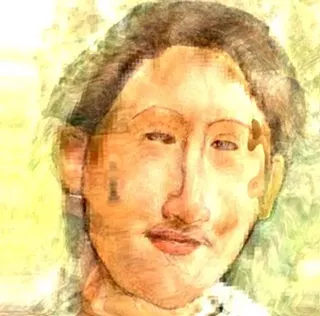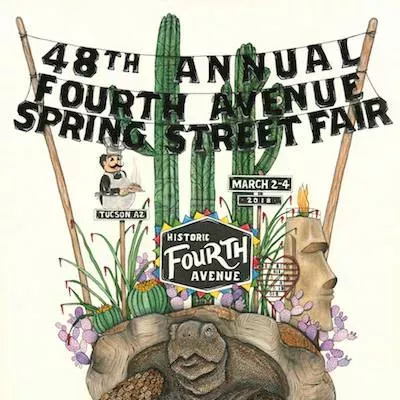Reversing its usual schedule, Arizona Opera opened the production last week in Phoenix, and brings it to Tucson this weekend. The three principal roles are double cast; the singers I encountered last Friday--soprano Jeanine Thames, tenor John Bellemer and baritone John Avey--will perform in Tucson on October 18 and 20. They'll be relieved by Patricia Johnson, Chad Shelton and David Malis for the October 19 performance.
Violetta, the wayward woman of the title, is one of the most beautiful and popular courtesans of 1850s Paris. Her status as a professional "kept woman" does not dissuade young Alfredo from falling in love with her, and persuading the skeptical Violetta of his sincerity. They go off to live contentedly in a country house until Alfredo's father, Germont, shows up. He insists that Violetta break off her liaison with his son, because it's causing a family scandal that threatens his daughter's engagement.
Without divulging Germont's involvement, Violetta leaves Alfredo, who assumes she's thrown him over for a wealthier, more prestigious patron. Crushed, Alfredo finds Violetta at a party and publicly denounces her, but is rebuked for his cruelty by the other guests and even his own father. In the last act, Violetta lies dying of tuberculosis. Germont has explained everything to Alfredo, and the lovers are reunited--only moments before Violetta dies.
Last week, Thames was a supple, precise, youthful-sounding Violetta, her vocal characterization limited only by her unrelenting fast and wide vibrato, present no matter what she was singing. Initially, her voice went a bit shrill on notes that were both high and loud, but this abated after the first act.
Bellemer brought an easy, natural, lyrical style to Alfredo, exactly what the role requires; he began well, and only grew stronger as the evening progressed.
Avey, as Germont, deployed a voice that was lovely to listen to but not fully engaged in the role. Germont is the most emotionally conflicted character on stage (impressed by Violetta's nobility, he immediately regrets what he must insist she do), but Avey's delivery never modulated with emotional color. His singing was always dark, hard and monochromatic, like beautifully sonorous charcoal.
The secondary parts were filled with customary aplomb; indeed, one could imagine a fully satisfying performance if Korby Myrick (Flora), Reynaldo Romo (Baron Douphol) and Ben Sorenson (Grenvil) ascended to the principal roles. The chorus was in fine form, and conductor Cal Stewart Kellogg kept the orchestra not only on task but fully committed; a few moments of unsteady string tone were easy to overlook.
Peter Dean Beck designed lighting and scenery that made the most of deliberately modest resources, except that the Act 2 set resembled a comfy country house less than an austere hotel lobby.
Stage director Michael Cavanagh could have been the star of the evening, had he not lost heart in the last act. He provided his own translations for the projected titles, and while traditionalists may find some lines too colloquial ("You should've kept your mouth shut"), it's clear that Cavanagh intended to present not overblown operatic "types" but believable characters with whom we can connect.
Perhaps to justify the exaggerated emotion and unrealistically compressed action endemic to opera (though not a great problem in Traviata), Cavanagh presents this as a series of flashbacks, Alfredo looking back on the action from his old age. Intense but distant memories, Cavanagh seems to say, reduce the past to only the most essential, brilliant dabs of color, as in the Monet paintings projected on a scrim before each act.
Cavanagh has devised a wonderful first act, a party scene staged with an actual sense of humor. The chorus members interact convincingly, and the principals' movements, gestures and reactions hew logically to the music. Then, after all this naturalism, Cavanagh takes striking advantage of one of opera's worst, most unimaginative conventions: lining up the chorus members to face the audience while they intone something fairly trivial. Here, the party guests are bidding Violetta farewell at the end of the evening. But Violetta has collapsed onto a couch in an attack of consumption, and the guests, their elegant formal wear now concealed by dark, hooded cloaks, surround her like angels of death, foreshadowing the opera's final scene.
Unfortunately, after two solid intervening scenes, Cavanagh seems not to have thought through the final act at all. Suddenly there's no chemistry between the characters, and Violetta rushes around the stage like a soprano with a slightly sore knee; this is not a TB patient with five minutes to live.
That's the sort of staging we'd get from most of the hack directors who've sleepwalked through this opera over the past century and a half, so it won't bother anybody with a few old Traviata ticket stubs at the bottom of some pocket. But Cavanagh is a smart, imaginative director who can do better, and should have for this far better than average production.








